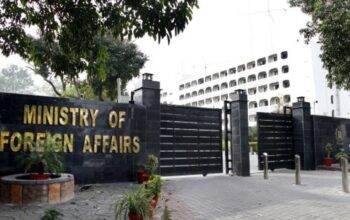By Staff Reporter
A critical anti-tax evasion initiative in the tobacco sector remains stalled in the mountainous region of Azad Jammu & Kashmir (AJK) despite years of planning, multiple deadlines, and urgent warnings about the growth of illicit cigarette production costing the national exchequer over Rs 300 billion annually.
The Federal Board of Revenue (FBR) has repeatedly failed to operationalize its Track and Trace System (TTS) in AJK, a region home to nearly a dozen tobacco factories accused of producing tax-evaded cigarettes sold across Pakistan. Despite a 2023 memorandum of understanding (MoU) with AJK’s Inland Revenue Department (IRD) and a review of sites in Mirpur and Bimber in January 2025, the TTS—a digital tool designed to monitor production and curb smuggling—remains unimplemented, raising questions about enforcement capacity and political will.
AJK’s tobacco factories have long been flagged as a key contributor to Pakistan’s illicit cigarette market, which now accounts for an estimated 60% of all sales nationwide. Unlike regulated manufacturers, these factories allegedly avoid federal excise duties (FED) and other taxes by operating in the semi-autonomous region, where federal oversight is limited. The FBR estimates that AJK-based factories produce a “major chunk” of tax-evaded cigarettes sold in Pakistan’s settled areas, exploiting regulatory gaps between AJK and federal jurisdictions.
Despite establishing check posts and signing agreements with AJK’s IRD, the FBR has struggled to enforce compliance. A January 2025 deadline to activate the TTS in AJK passed without progress, marking the latest in a series of delays since the system’s initial rollout in 2021.
FBR officials accepted that the incentives for illicit cigarettes have gone up manifold and without the TTS, they’re fighting this battle blindfolded.
The TTS, part of a $130 million contract with a consortium led by Swiss firm Mühlbauer Group, uses digital stamps and live production monitoring to track goods from factories to consumers. Implemented in Pakistan’s sugar, fertilizer, and tobacco sectors, it aimed to reduce counterfeiting and tax evasion, which cost Pakistan an estimated Rs600 billion yearly.
In the tobacco sector, the system was designed to ensure each cigarette pack bears a tax-paid stamp, allowing authorities to trace illicit products. However, its rollout in AJK faced immediate hurdles. Factories resisted compliance, while legal challenges—including stay orders from courts—delayed enforcement for years. Though courts eventually vacated these orders, the FBR and AJK authorities have yet to act decisively.
The TTS is only as strong as the enforcement behind it. Without buy-in from local governments and factories, it becomes another piece of unused tech.
The FBR’s timeline reveals a pattern of unmet promises:
2021: TTS launched nationally, excluding AJK due to jurisdictional complexities.
2023: FBR and AJK’s IRD sign MoU, setting a January 31, 2023, deadline for TTS implementation.
2025: After missed deadlines, a January 2025 review in Mirpur and Bimber ends without progress.
Meanwhile, a 200 percent hike in federal excise duties in 2023—intended to boost revenue—backfired by making illicit cigarettes even more profitable. Cheaper, untaxed packs from AJK flooded markets, undercutting compliant manufacturers and shrinking the tax base.
Legitimate companies are losing 40 percent of their sales to illicit trade and the TTS delay is a policy failure.
Analysts cite AJK’s semi-autonomous status as a key barrier. While the region coordinates with Pakistan on some fiscal matters, its administration retains control over local industries. The FBR lacks direct authority to enforce federal systems like the TTS without AJK’s cooperation—a partnership that has proven inconsistent.
Officials said AJK’s IRD agrees to these plans in principle, but implementation is another story. There’s reluctance to disrupt local businesses that provide jobs.
Political considerations also play a role. With AJK’s economy reliant on sectors like tobacco, policymakers fear destabilizing a region already marked by unrest.
The TTS stalemate reflects wider challenges in Pakistan’s efforts to formalize its economy. The country ranks among the top 10 globally for illicit cigarette trade, per the Oxford Economics Global Illicit Trade Report. Tax evasion deprives Pakistan of critical revenue as it navigates IMF-mandated austerity measures and a debt crisis.
Analysts said every year of delay means billions lost, and it’s not just about cigarettes—it’s about establishing state credibility in enforcement.
The FBR insists it remains committed to the TTS, but stakeholders demand urgent action. Proposals include stricter penalties for non-compliant factories, federal-AJK joint task forces, and incentivizing AJK’s cooperation through revenue-sharing agreements. For now, however, AJK’s factories operate unchecked—and Pakistan’s tax gap keeps growing.
Copyright © 2021 Independent Pakistan | All rights reserved




